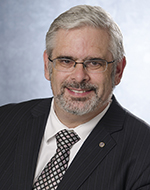Page Content
 Question: Why is the ATA so concerned with Indigenous issues and expending so much money and so many resources on this one aspect of education? Our teachers and students come from many backgrounds and beliefs that are equally worthy of attention and support.
Question: Why is the ATA so concerned with Indigenous issues and expending so much money and so many resources on this one aspect of education? Our teachers and students come from many backgrounds and beliefs that are equally worthy of attention and support.
Answer: I appreciate this question because I think it reflects beliefs and concerns that are more widespread than we care to admit, and because it deserves an upfront response.
One reason that the Association is supporting members to acquire a foundational knowledge of Indigenous history, including the legacy of residential schools, is that this is a requirement of the new Teaching Quality Standard that every teacher will be required to meet. The school leader and superintendent standards have parallel requirements.
Similarly, aspects of Indigenous history, experience and ways of knowing are being included throughout the new programs of study that are being introduced as part of the curriculum renewal process. This marks a fundamental shift in the focus and mission of public education that were mandated by the Truth and Reconciliation Commission’s recommendations concerning education. The commission has stated that education can provide a pathway for Canada to begin to address the intergenerational harm done to Indigenous peoples by the residential school system and the legacy of settlement.
The enduring damage done by residential schools to Indigenous people, individually and collectively, was done largely by teachers.
|
As the professional organization serving all teachers in Alberta’s public, Catholic and francophone schools, the Association has a natural role to play in informing teachers and supporting them as they develop their professional practice to meet the new requirements. To this end, the Association partnered with Alberta Education in the Walking Together Project. Walking Together worked to deepen the profession’s relationship with Indigenous people in the province and developed a range of resources for teachers. While this was a good start, it is very apparent that our work will need to continue into the future.
But, an objector might argue, every culture and ethnic group has its sad stories. Why give Indigenous peoples’ history more prominence than that of other groups?
I think the response to this engages our historical and moral responsibilities. The enduring damage done by residential schools to Indigenous people, individually and collectively, was done largely by teachers. While these teachers were not members of our Association and the residential schools operated outside of provincial jurisdiction, these are distinctions without differences. The attitudes that gave rise to and sustained residential schools were widespread throughout Canadian society and visited in classrooms over the decades.
Our profession, therefore, has a special obligation to acknowledge its role and to attempt to undo the harm it has done. And there is much work to do. While progress is being made, the learning outcomes for Indigenous students still lag behind those of other populations, and Indigenous peoples’ experience of schooling is still fraught by history and the very real experience of present-day prejudice and discrimination.
It is important, however, that teachers not regard efforts to respond to the recommendations of the commission and the requirements in the new quality standards and curriculum as merely another burden. Instead, these provide us with an opportunity to be better teachers and to better all of our students. They provide an opportunity for us to redeem our profession. ❚
Questions for consideration in this column are welcome. Please address them to Dennis Theobald at Barnett House (dennis.theobald@ata.ab.ca).
